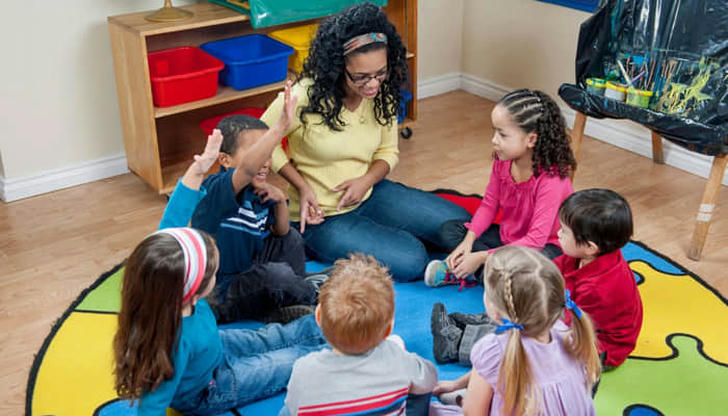How to Get Your Kids to Engage in Group Activities: A Parent's Guide

In today’s fast-paced world, the importance of social skills in children cannot be overstated. As they grow, children are faced with numerous opportunities to interact with their peers, and engaging in group activities is one of the most effective ways to foster these essential skills. Whether through sports teams, art classes, or community clubs, group activities provide a supportive environment where children can meet new friends, learn teamwork, and practice communication. However, parents often have concerns about their child’s involvement in these activities. This article explores common parental worries and offers strategies to address them.
1. Social Anxiety
Many parents worry about their child's comfort level in new social settings, as it's natural for children to feel anxious when meeting new peers or trying unfamiliar activities. To ease this anxiety, parents can encourage gradual exposure to group situations. Starting with smaller groups or familiar faces allows children to build confidence in a less intimidating environment.
Additionally, discussing the upcoming experience and role-playing potential scenarios can significantly prepare children for social interactions. By practicing how to approach new situations, children can develop strategies to navigate social dynamics, making them feel more secure and less overwhelmed when they encounter new peers or activities.

2. Finding the Right Fit
Choosing the right activity that aligns with a child's interests is crucial for fostering engagement and enjoyment. Parents should explore various options, considering their child's unique preferences in sports, arts, music, or academic clubs. Open discussions help children articulate what excites them, enhancing motivation and laying the groundwork for positive experiences.
Involving children in the decision-making process empowers them and fosters ownership of their choices. When children feel their opinions matter, they are more enthusiastic about participating. Parents can also consider trial classes, allowing children to explore different activities without long-term commitments, ensuring they engage in pursuits they genuinely enjoy for a fulfilling experience.

3. Time Management
Balancing extracurricular activities with schoolwork and family time can be a significant challenge for both children and parents. Overcommitting to too many activities often leads to stress and burnout, diminishing the enjoyment of these pursuits. Parents play a crucial role in monitoring their child's schedule closely to prevent overwhelming them. Ensuring that children have enough downtime for relaxation and family bonding is essential for their overall well-being.
Establishing a routine that incorporates time for homework, leisure, and group activities is vital for maintaining a healthy balance. A well-structured schedule can help children manage their responsibilities while still enjoying their extracurricular interests. Flexibility within this routine allows for adjustments based on the child's needs and energy levels.
By creating a balanced approach, parents can help their children thrive in their pursuits while also allowing them to enjoy quality family time. This method fosters well-rounded development, teaching children valuable time management skills and promoting their emotional health. Ultimately, finding this equilibrium supports both academic success and personal fulfillment, paving the way for a happier, more engaged child.
4. Peer Pressure
Concerns about negative peer pressure are prevalent among parents as children navigate complex social dynamics. To address these worries, open discussions about values and expectations are essential. By preparing children for potential challenges in group settings, parents can help them develop a strong sense of self and the confidence to make informed decisions. Encouraging children to express their feelings about peer interactions fosters an environment of trust and communication.
Additionally, role-playing scenarios where children might encounter peer pressure can be an effective strategy. This practice equips them with assertive responses and coping mechanisms, enabling them to handle such situations confidently. By reinforcing the importance of aligning choices with their values, parents can empower their children to navigate social pressures successfully.

5. Quality of Instruction
Parents should thoroughly research clubs or classes to ensure that the leaders are qualified and foster a safe environment for all participants. This can involve checking online reviews, asking for recommendations from other parents, and even visiting classes before enrolling their child. These steps provide valuable insight into the quality of instruction and the overall atmosphere of the activity.
Establishing open communication with instructors is equally important. By maintaining a dialogue, parents can stay informed about their child's progress and address any concerns that may arise during participation. This proactive approach not only enhances the child's experience but also helps parents feel more connected to their child's extracurricular activities.

Engaging in group activities is a powerful way for children to develop essential social skills while enjoying themselves and making new friends. While parents may have concerns regarding social anxiety, time management, or peer pressure, these challenges can often be navigated with open communication and careful planning. By encouraging participation in group activities that align with their interests, parents can help their children build confidence, foster friendships, and prepare for future social interactions. In doing so, they not only enhance their child’s social development but also contribute positively to their overall growth as individuals.

